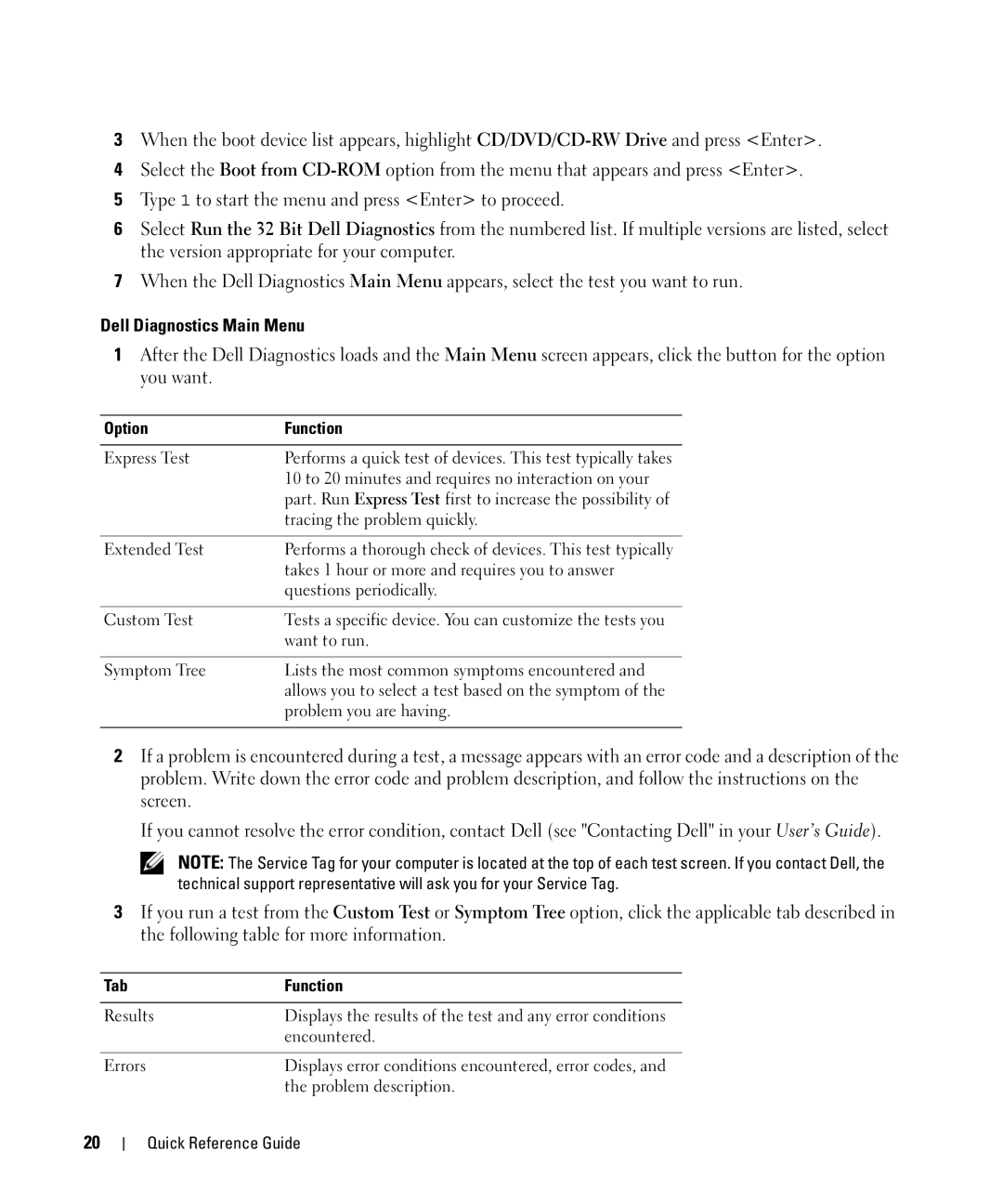
3When the boot device list appears, highlight
4Select the Boot from
5Type 1 to start the menu and press <Enter> to proceed.
6Select Run the 32 Bit Dell Diagnostics from the numbered list. If multiple versions are listed, select the version appropriate for your computer.
7When the Dell Diagnostics Main Menu appears, select the test you want to run.
Dell Diagnostics Main Menu
1After the Dell Diagnostics loads and the Main Menu screen appears, click the button for the option you want.
Option | Function |
|
|
Express Test | Performs a quick test of devices. This test typically takes |
| 10 to 20 minutes and requires no interaction on your |
| part. Run Express Test first to increase the possibility of |
| tracing the problem quickly. |
|
|
Extended Test | Performs a thorough check of devices. This test typically |
| takes 1 hour or more and requires you to answer |
| questions periodically. |
|
|
Custom Test | Tests a specific device. You can customize the tests you |
| want to run. |
|
|
Symptom Tree | Lists the most common symptoms encountered and |
| allows you to select a test based on the symptom of the |
| problem you are having. |
|
|
2If a problem is encountered during a test, a message appears with an error code and a description of the problem. Write down the error code and problem description, and follow the instructions on the screen.
If you cannot resolve the error condition, contact Dell (see "Contacting Dell" in your User’s Guide).
NOTE: The Service Tag for your computer is located at the top of each test screen. If you contact Dell, the technical support representative will ask you for your Service Tag.
3If you run a test from the Custom Test or Symptom Tree option, click the applicable tab described in the following table for more information.
Tab | Function |
Results | Displays the results of the test and any error conditions |
| encountered. |
|
|
Errors | Displays error conditions encountered, error codes, and |
| the problem description. |
20
Quick Reference Guide
